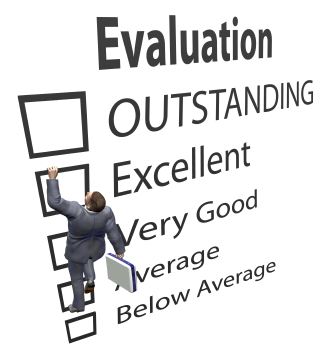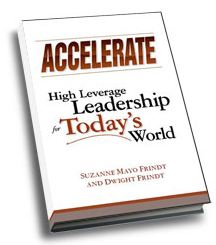 “If you expect performance, then make it [meaning your expectations] ’acutely clear’ so people have the opportunity to succeed.” -- Jim Moats
A very thoughtful leader, friend, and fellow Vistage Chair posted, “The Way Things Work” on his Peer Place blog and got me thinking about a provocative question one of our CEO clients asked the other day. We were discussing one of the people in his firm who has been producing extraordinary results from being in a coaching program. Her performance had become a major turn-around. Her comment to our coach was, “why didn’t anyone ever tell me…?” meaning, she had no idea she had been "missing the mark" to such an extent. When discussing this with the CEO, his question was “ I wonder how many good people are let go every year because no one ever communicated or invested in their success?"
“If you expect performance, then make it [meaning your expectations] ’acutely clear’ so people have the opportunity to succeed.” -- Jim Moats
A very thoughtful leader, friend, and fellow Vistage Chair posted, “The Way Things Work” on his Peer Place blog and got me thinking about a provocative question one of our CEO clients asked the other day. We were discussing one of the people in his firm who has been producing extraordinary results from being in a coaching program. Her performance had become a major turn-around. Her comment to our coach was, “why didn’t anyone ever tell me…?” meaning, she had no idea she had been "missing the mark" to such an extent. When discussing this with the CEO, his question was “ I wonder how many good people are let go every year because no one ever communicated or invested in their success?"
This is an absolutely critical question to think about as a leader. How many good people reporting to you have "failed" and how many good people have you let go during your career because you didn't communicate clearly enough, effectively enough, or invest in their success? And, what is the cause of so much ineffective communication and such a plain lack of communication about something as critical and fundamental as job performance and success?
Sometimes it seems that unclear expectations are part of an instant, automatic and unexamined control mechanism. If as a leader, you are unclear, then you can leave others off balance. They really can't fully succeed and you are in control. (Some part of you may even relish playing a "savior" role.) If your ideas weren't all that sound, and you were vague, you can always say “that's not what I really meant” if things start to go awry. Worse, if your team nails it and gets close to stellar performance, you can move the target. All of these are very unconscious ways to maintain leadership control and they can also be very destructive to your team. It's control in a delusional sort of way!
There is also a sort of laziness to being unclear. You can continue with a "ready, fire, aim" approach and just keep moving. While many entrepreneurs and leaders are extremely fond of this approach it also lets them off the hook. They don't really have to be rigorous. They don't have to think things through and they don't have to take personal responsibility because the ideas have "been delegated." If/when an idea fails it's because the team didn't perform.
 Being 'acutely clear,' (as Jim Moats describes), and in partnership with those around you, puts you in what we call in our book "Accelerate," the Productive Dialogue Zone. It takes courage and a willingness to give up control in favor of the outcomes you want. It also takes letting others participate in the “how” of getting there. By doing this you will need to challenge yourself to receive feedback on ideas and not take it personally. This actually makes your life as a leader easier. Allow your team to be rigorous and help think things through. Take the burden off of yourself and be inclusive.
Being 'acutely clear,' (as Jim Moats describes), and in partnership with those around you, puts you in what we call in our book "Accelerate," the Productive Dialogue Zone. It takes courage and a willingness to give up control in favor of the outcomes you want. It also takes letting others participate in the “how” of getting there. By doing this you will need to challenge yourself to receive feedback on ideas and not take it personally. This actually makes your life as a leader easier. Allow your team to be rigorous and help think things through. Take the burden off of yourself and be inclusive.
In his blog, Jim further points out, “Setting acutely clear expectations rules out “trying” and creates the need for learning from each setback or unexpected obstacle. Training makes average people strong, while trying makes strong people average.”
The trade off for apparent loss of control is dramatically increasing the odds of getting what you want, having real partnerships with people, and unleashing all kinds of creativity around you.
Do you recognize yourself or your leadership style here? What do you REALLY want and are you willing to be rigorous with yourself and open and inclusive with others to get it?

 Our book, "
Our book, " In her November 5, 2009 blog post entitled, “
In her November 5, 2009 blog post entitled, “